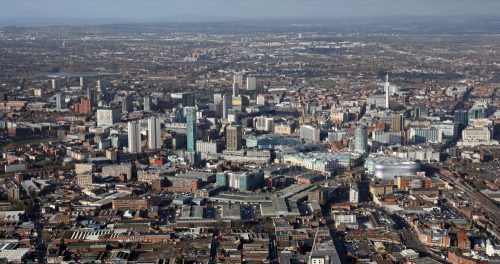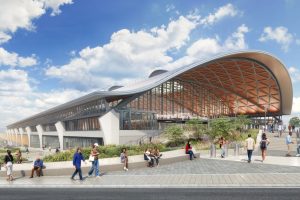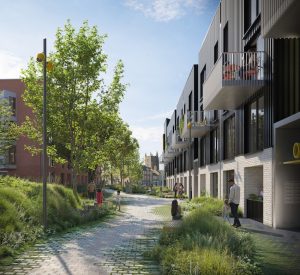Birmingham office take-up rises 12% in first half

Office take-up in Birmingham reached 371,897 sq ft in the first half of 2024, a 12% increase on the same period last year.
According to Savills, this was up 4% and 2% against the five and 10 year average respectively.
The report shows the trend towards premium, sustainable office space continues to be evident, driven by a growing recognition of the need for higher quality working environments and the long-term benefits of sustainability in the workplace, including improved employee wellbeing and potential cost savings.
In Birmingham, 74% of total take-up was for this type of space (Prime and Grade A), which typically offer the best in modern amenities and sustainability features. This is 20% higher than the 10-year long term H1 average at 62%.
In H1 2024, public services, education and health accounted for 38% of take-up and there was a narrow gap between the second sector which was telecommunications, media and technology (TMT), representing 36% of total take-up.
The largest deal in the first half of the year was the BBC taking 84,000 sq ft at Bordesley Street, 90 Typhoo Wharf, followed by a public sector occupier at Three Snowhill, and the third was University College Birmingham at Baskerville House.
Savills said these deals highlight the diversification in Birmingham’s occupier base and the city’s continued strength as a key business destination.
Ben Thacker, director, office agency, Savills Birmingham, said: “Birmingham’s office market has showcased strength in the first half of 2024. The projected future rental growth and a consistent 4% annual growth rate over the past decade affirms Birmingham as a leading destination for businesses and investors. The city’s unique profile due to its central location, excellent transportation links, access to talent and range of office stock on offer stands it in good stead for continued appeal throughout the second half of the year and beyond.”
Mark Walsh, EMEA head of corporate account management, global occupier services at Savills, adds: “The commercial real estate landscape is evolving post-pandemic, with a clear shift in occupier demands. The scarcity of prime office spaces is becoming apparent, influencing both uptake rates and rental prices. Occupiers are now prioritising flexibility, quality, and sustainability in their work environments. This trend suggests that developers who can meet these new standards may find themselves at a competitive advantage, as businesses are willing to hold out for spaces that align with their updated criteria.”









